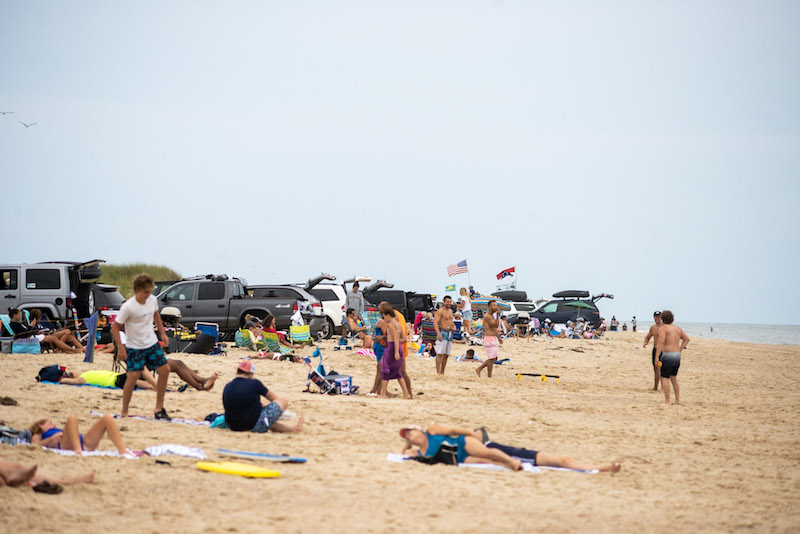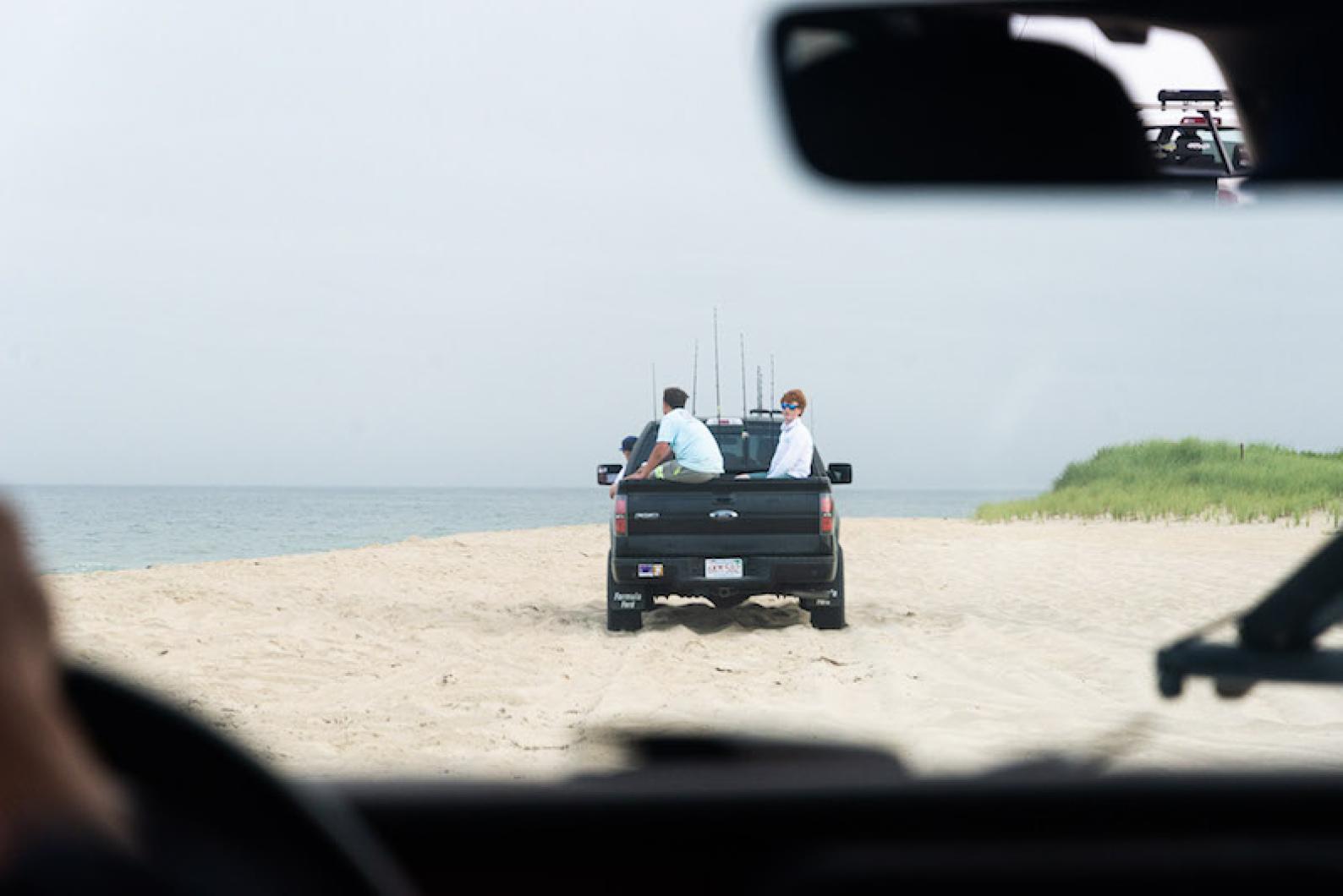Sales of oversand vehicle stickers for the Trustees of Reservations are at an all-time high this summer, in what is shaping up to be the busiest year in recent memory on the water — and waterfront — around the Island.
Sam Hart, Islands portfolio director for the Trustees, said that as of August 4 the Trustees had sold 3,355 oversand permits for Norton Point, Cape Pogue and Wasque — an increase of 40 per cent over the same time period last year.
The increase stands in sharp contrast with late spring, when sticker sales were down as strict stay-at-home orders were in effect statewide.

“We don’t know where this is going to land . . . but to date we are at a pace that not only eclipses last year, but most years in recent memory,” Mr. Hart said, speaking to the Gazette by phone.
The Trustees own or manage more than 600 acres of coastal barrier beach running from the county-owned beach at Norton Point to Trustees-owned properties at Wasque Reservation and Cape Pogue Wildlife Refuge. Leland Beach, an east-facing stretch of coastline north of Wasque, is owned by the state and managed by the Trustees.
The Chappy beaches and Norton Point are the only public properties on the Island where beach driving is allowed. Sales of oversand vehicle stickers provide revenue for the Trustees, a Massachusetts-based conservancy that owns and manages properties around the commonwealth and is dedicated to public use, conservation, recreation and education.
This summer the public use part has exploded.
“The Trustees are very happy to offer this type of access,” Mr. Hart said. “It’s a safe way to socially distance, stay within your stable group and to have a nice time at the beach.”
He said pedestrian beach use at Long Point Wildlife Refuge in West Tisbury has also skyrocketed this summer. Due to the pandemic, advance online reservations are required to go to Long Point this summer, and Mr. Hart said the spaces go quickly.
“We’re basically selling out the tickets as soon as we put them online,” he said.
There is no beach driving at Long Point.
At Norton Point and on Chappaquiddick, Mr. Hart said the Trustees closely regulate and monitor beach use by vehicles.
“We use symbolic fencing to mark where to drive. The way we manage the OSV [oversand vehicle] corridors is with very strict guidelines set forth by state coastal zone management in 1994, such as keeping the OSV corridor away from the toe of the dune,” he said. “There’s a method to the madness, we have rangers on patrol out there, if people are driving outside of the OSV corridor fencing, we ask them to leave.”
Norton Point recently reopened for oversand vehicle use after it had been closed to vehicles early in the summer to protect piping plover nests.
The shorebirds have fledged by now, Mr. Hart said, so the beaches are open for use by four-wheel-drive vehicles again.
But the forces of nature are ever dominant on the dynamic barrier beaches. Erosion from tropical storm Isaias last week washed away large sections of beach trails, forcing the Trustees to temporarily close all their beaches to assess damage and possibly re-route trails.
It all adds up to a delicate balancing act, Mr. Hart said.
“It’s certainly a balance and we do our best to maintain it,” he said.







Comments (20)
Comments
Comment policy »